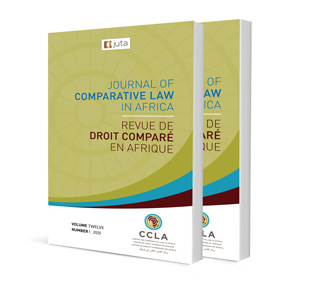
When the Apex Court’s Decision is not Final: The Power of Apex Courts to Review (Rescind) Their Decisions in Some African Countries
Author: Jamil Ddamulira Mujuzi
ISSN: 2521-2605
Affiliations: Professor of Law, Faculty of Law, University of the Western Cape, South Africa
Source: Journal of Comparative Law in Africa, Volume 12 Issue 1, p. 42 – 102
https://doi.org/10.47348/JCLA/v12/i1a2
Abstract
Generally, the decision of the highest/apex court in a country is final. However, courts are staffed by human beings, and it is natural to err. It is not uncommon for apex courts to make mistakes. Legislation and case law from African countries show that courts can ‘escape’ the consequences of their mistake in one of the three ways. First, by departing from a previous erroneous/outdated decision (in a subsequent case). Second, by invoking the ‘slip rule’ to correct clerical or arithmetical errors. Three, which is the focus of this article, by reviewing/rescinding their decisions. In this case, one of the parties to a judgment asks a court to re-open the case he/she has lost and set aside its decision. As the discussion below shows, this remedy is available to, among other things, protect the right of access to justice (courts) to prevent an injustice, or. to protect the integrity of the court. This ultimately contributes to the entrenchment of the rule of law. This article shows that African countries have adopted five different approaches in dealing with the apex courts’ powers to review their decisions. First, the constitutions of some African countries such as Ghana, Eswatini, the Gambia and Namibia expressly allow courts to review their decisions. Second, in some countries such as Uganda, South Africa, Tanzania and Zimbabwe the apex courts’ power/jurisdiction to review their decisions is provided for in their respective rules. Third, in some countries such as Lesotho, Seychelles, Zambia, and Sierra Leone neither the constitutions nor the rules empower apex courts to review their decisions. However, courts have invoked their inherent powers as the basis to review their decisions. Fourth, in Kenya, the Supreme Court’s powers to review its decisions are provided for in legislation and rules of the court. Finally, in Nigeria, the Supreme Court rules prohibit it from reviewing its decisions. However, the Supreme Court held that it has inherent powers to review its decisions. This article shows that, irrespective of the source(s) of the power, case law from all the courts show that there is consensus that apex courts will review their decision(s), whether criminal or civil, if it is in the interests of justice to do so. Different grounds/reasons are invoked to explain why it is in the interests of justice to review a court’s decision. In some countries the list of the grounds of review is closed whereas in others it is open. In some countries, judges often disagree on the issue of whether the apex court’s power to review its decisions is categorised as ‘inherent jurisdiction’ or ‘inherent power.’ In this article, it is argued that in countries where legislation empowers courts to review their decisions, they have jurisdiction. Inherent powers exist in countries where legislation is silent on court’s powers to review their decisions. Although finality of litigation is a very important principle, achieving the ends of justice is more important. Thus, apex courts should not be very conservative when developing principles on reviewing their decisions.